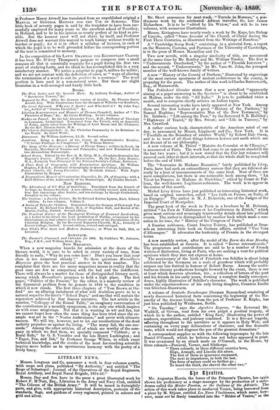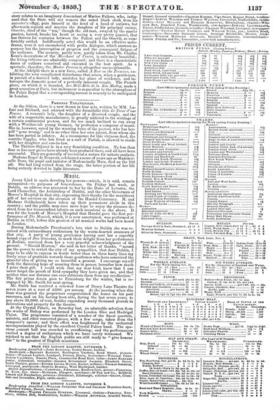tit tOratril.
Mr. Augustus Harris, the lessee of the Princess's Theatre, has again shown his proficiency as a stage-manager by the production of a melo- drama called the Master Passion, or the Outlaws of the Adriatic. The action of this work takes place in mediaeval Venice, being borrowed from a piece by M. Sejour, entitled Les Notes Vernitiennes, which name, how- ever, must not be freely translated into the " Brides of Venice," as the story relates to an imaginary descendant of Marino Faliero, who, indig- nant that the State will not remove the noted black cloth from his ancestor's effigy, puts himself at the head of a band of outlaws, but afterwards repents and marries the daughter of his principal enemy, Orsevlo, chief of the " ten," though the old man, swayed by the master passion, hatred, breaks his heart at seeing a very pretty quarrel, that has thriven for centuries between the Fallen and the Orsevli, so com- fortably settled. Indifferently acted this would be an effective melo- drama, were it not encumbered with prolix dialogue, which answers no purpose but the interruption of progress and the consequent fatigue of the audience. The scenery, partly new, partly taken from Mr. Charles Kean's decorations of the Merchant of Venice, is extremely beautiful ; the living tableaux are admirably composed; and there is a characteristic dance of outlaws conceived and executed in the best spirit. As a spectacle, therefore, the Master Passion is altogether unexceptionable. At the Adelphi there is a new farce, called A Bow on the Premises, ex- hibiting the very complicated disturbance that arises, when a gentleman, in pursuit of a married lady, mistakes her place of residence, and in- terrupts the domestic peace of a perfectly innocent couple. The French piece, on which it is founded, Les Meld-ifelo de la Rue Malay, made a great sensation at Paris, but its humour is so peculiar to the atmosphere of the Palais Royal that a corresponding success is scarcely to be anticipated in London.



























 Previous page
Previous page